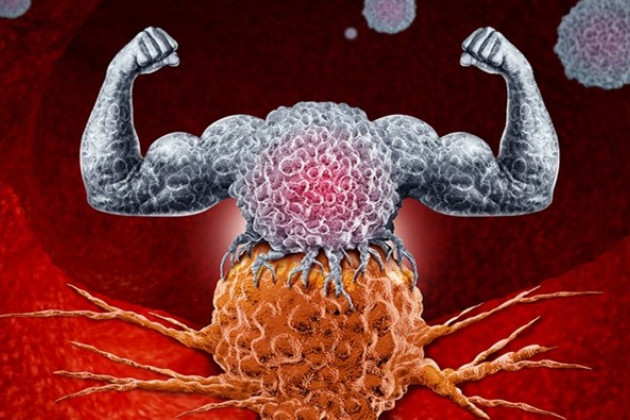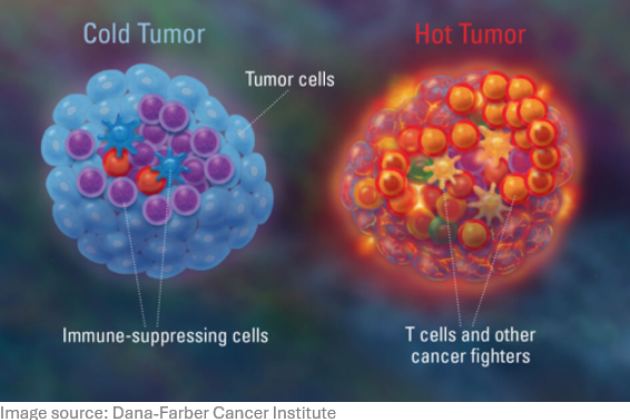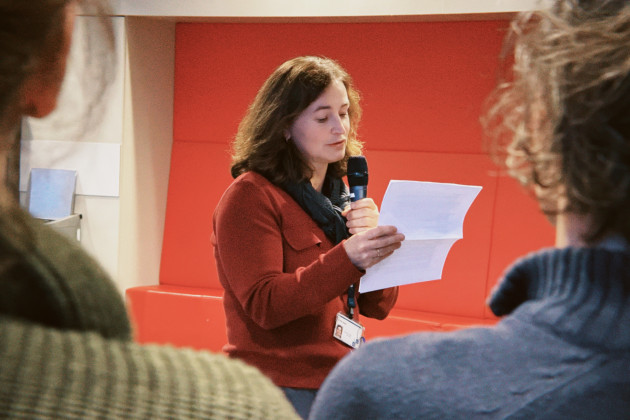During pregnancy, the placenta is important for the exchange of gases and nutrients between mother and fetus, and for the production of hormones that regulate maternal and fetal physiology. The blastocyst is surrounded by fetal trophoblasts, which upon implantation in the endometrium play a role in placenta development. This process (called placentation) needs regulation of growth of the fetal capillary network and expansion and remodeling of the maternal uterine vasculature by invading trophoblasts. Defective remodeling of the maternal vasculature is associated with pregnancy complications.
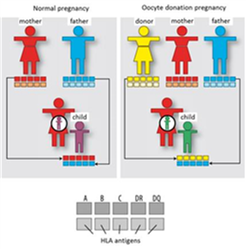 In naturally conceived pregnancy, the baby is semi-allogeneic to the mother, and thereby the maternal immune system is exposed to foreign HLA antigens of the child (Figure 1 – left panel). In oocyte donation pregnancy, the fetus is most of the times completely allogeneic to the mother (Figure 1 – right panel). Consequently, oocyte donation pregnancy is associated with a higher risk of pre-eclampsia (severe hypertension in the mother).
In naturally conceived pregnancy, the baby is semi-allogeneic to the mother, and thereby the maternal immune system is exposed to foreign HLA antigens of the child (Figure 1 – left panel). In oocyte donation pregnancy, the fetus is most of the times completely allogeneic to the mother (Figure 1 – right panel). Consequently, oocyte donation pregnancy is associated with a higher risk of pre-eclampsia (severe hypertension in the mother).
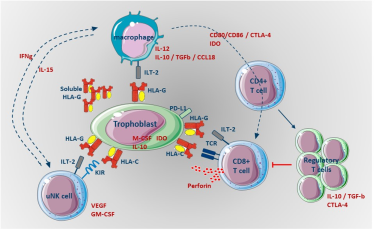
As trophoblasts of the fetus are invading into the endometrium of the mother to establish development of the placenta, they need to be immunologically tolerated by local maternal immune cells. Several mechanisms are at play to establish this (Figure 2).
Research focus
We are interested in the behavior of fetal trophoblasts and immune cells, in how they interact and influence each other, and in the mechanisms by which the phenotype and function of these cells are modulated. This interests encompasses the following aspects:
- In oocyte donation pregnancies we investigate the concept whether the maternal immune system needs to adapt even more to accept the fetus.
- In women with recurrent pregnancy loss we study the characteristics of local immune cells, thereby especially looking at deviations in populations of regulatory T cells, myeloid cells, and NK cells.
- Women with chronic histiocytic intervillositis typically have elevated frequencies of myeloid cells and T cells in the placenta. We aim to characterize the immune features of these cells.
The research group also investigates maternal and fetal microchimerism in pregnancy and the interplay of these chimeric cells with the immune system to better understand immunological tolerance.
Research group
There is a strong collaboration between the Departments of Immunology and Obstetrics-Gynecology within the Leiden University Medical Center. Our group consists of principal investigators, PhD students, technicians, clinical/research fellows, and graduate students, who are performing research to address the aims outlined above.
